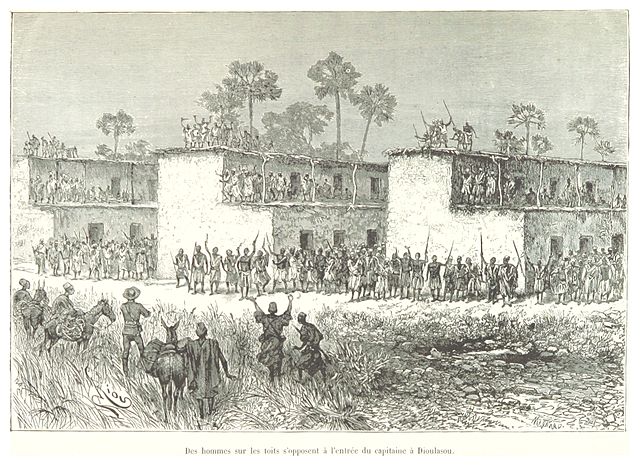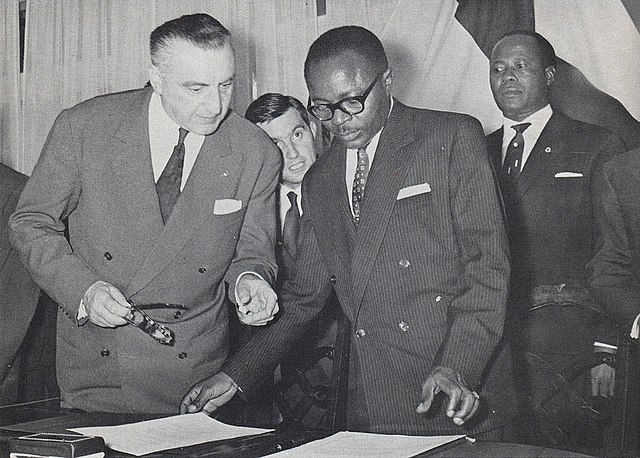January 2022 Burkina Faso coup d'état
A coup d'état was launched in Burkina Faso on 23 January 2022. Gunfire erupted in front of the presidential residence in the Burkinabé capital Ouagadougou and several military barracks around the city. Soldiers were reported to have seized control of the military base in the capital. The government denied there was an active coup in the country. Several hours later, President Roch Marc Christian Kaboré was reported to have been detained by the soldiers at the military camp in the capital. On 24 January, the military announced on television that Kaboré had been deposed from his position as president. After the announcement, the military declared that the parliament, government and constitution had been dissolved. The coup d'état was led by military officer Paul-Henri Sandaogo Damiba.
Roch Marc Christian Kaboré
Paul-Henri Sandaogo Damiba
Burkina Faso is a landlocked country in West Africa. It covers an area of 274,223 km2 (105,878 sq mi), bordered by Mali to the northwest, Niger to the northeast, Benin to the southeast, Togo and Ghana to the south, and Ivory Coast to the southwest. As of 2021, the country had an estimated population of 23,674,480. Previously called Republic of Upper Volta (1958–1984), it was renamed Burkina Faso by President Thomas Sankara. Its citizens are known as Burkinabè, and its capital and largest city is Ouagadougou.
The cavalry of the Mossi Kingdoms were experts at raiding deep into enemy territory, even against the formidable Mali Empire.
Armed men prevent the French explorer Louis-Gustave Binger from entering Sia (Bobo-Dioulasso) during his stay in April 1892.
The capital, Ouagadougou, in 1930
Maurice Yaméogo, the first president of Upper Volta, examines documents pertaining to the ratification of the country's independence in 1960






